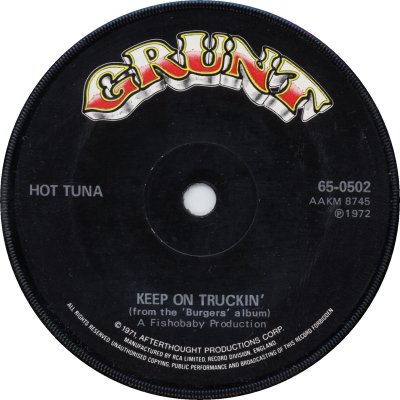
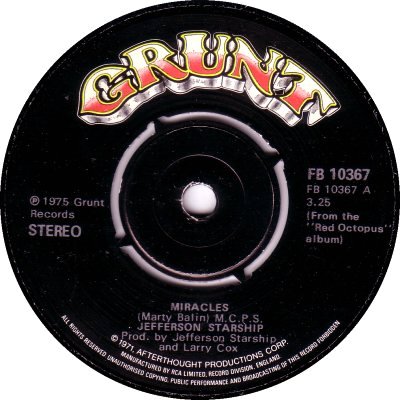
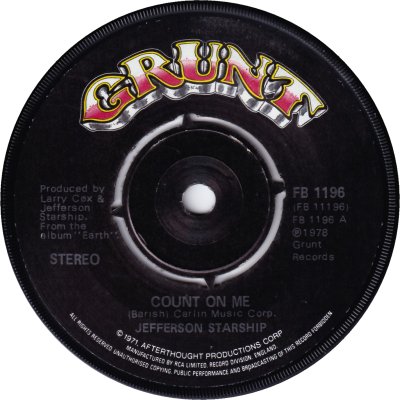
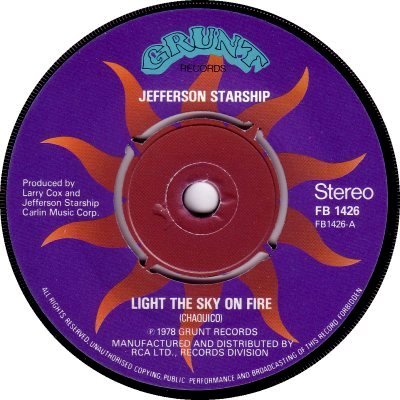
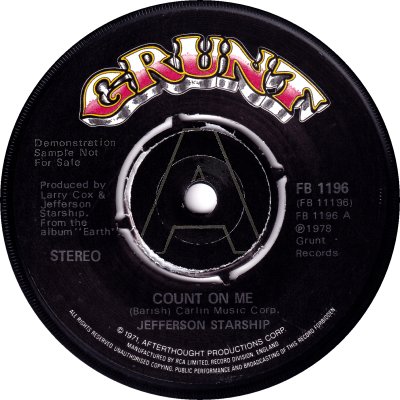
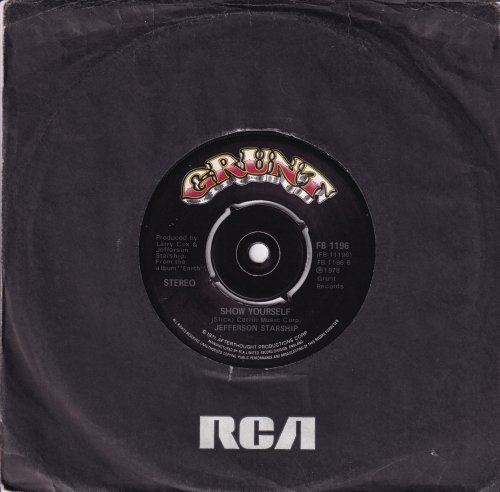
American. 'Record Retailer' of the 7th of August 1971 reported that Grunt had been formed by the band Jefferson Airplane and their manager Bill Thompson, and that it had signed to RCA worldwide - by that time the Airplane had a relationship with RCA that went back to 1967. 'Billboard' of the same date added that the new label was to be used for the band's releases and individual members' projects; it described Thompson as the band's business manager, and said that Grunt, which had been launched under the umbrella of the Afterthought Productions Corporation, had offices in New York and San Francisco. Grunt got off to a good start when its first release, the Airplane's 'Bark' LP, was certified gold a week after its release ('BB', 11th September). Sales continued to be encouraging, and 'BB' of the 16th of June commented that halfway through its contract with RCA Grunt had sold two-and-a-half million LPs and tapes. From late 1976 it served solely as a vehicle for recordings by Jefferson Starship, or later just plain Starship as the Airplane eventually became, and by the end of the decade Thompson was describing it as 'more or less moribund' and 'more a logo than a label' ('BB' 22nd December 1979). It continued to serve that basic purpose until 1987.
As far as Britain is concerned, Grunt issued records somewhat infrequently; not everything that was released in America was released here. It put its first single out at the start of 1972 but had to wait till the 1980s for a taste of Chart success, 'Jane' b/w 'Freedom At Point Zero' (FB-1759; 1/80) doing the trick for Jefferson Starship at the beginning of the new decade by reaching the No.20 spot. A couple more hits from the abbreviated Starship followed in 1985 and 1986, but they were on RCA. The band did however readopt the Grunt label for one final single, 1987's 'Nothing's Gonna Stop Us Now' b/w 'Layin' It On The Line' (FB-49757; 3/87), which saw Grunt out with a bang, going all the way to No.1.
One basic label design (1) served throughout, though the position of some of the credits changed now and again (2, 3). 'Light The Sky On Fire' b/w 'Hyperdrive' (FB-1426; 3/79), which was given away with the 'Gold' album, had its own discrete labels (4). Demo copies were marked in the standard RCA-family manner (5). There was no company sleeve, but later Grunt singles sometimes appeared in the sleeves which RCA used for its associated labels (6). The first five singles were given the same catalogue numbers as their American counterparts, initially in a 65-0500 series, latterly in the FB-10000s; a separate and short-lived RCG-1000 series followed. Subsequent releases used the American numbers but dropped the initial '1', FB-11196 of the USA becoming FB-1196 over here. The FB prefix was used for singles on Windsong, Midsong, Tattoo, New York International, Soul Train and Solar (q.v. all) as well as Grunt. The discography below covers the '80s as well as the '70s, for once.
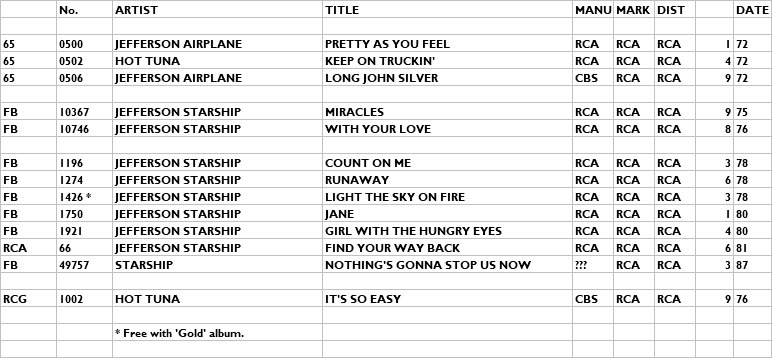


Copyright 2006 Robert Lyons.

